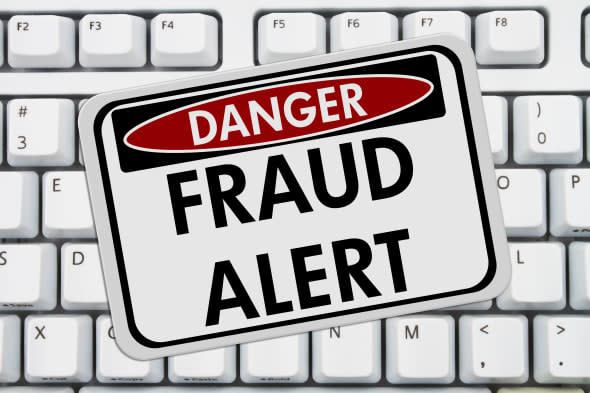How can you avoid becoming a victim of fraud?

More than one in ten people have fallen victim to some kind of fraud in their lifetime, and the experts are warning that the number of attacks is on the rise.
NatWest says that the best defence is to be aware of the most common scams, and take steps to protect yourself from them.
The bank has produced a list of seven common scams to watch out for.
1. Email scams pretending to be from your bank
These are known as phishing emails, which claim to be from your bank and try to trick you into handing over sensitive data or passwords. NatWest emphasises that they would never send emails asking you to verify, confirm or update your online banking details - so if you get an email like this, it's a scam.
If you receive an email that claims to be from your bank, they recommend contacting the bank in question - not by replying to the email but by phoning - and checking whether the contact is genuine.
2. Courier card scams
These tend to start with a phone call, in which someone pretends to be from your bank, the police, or a fraud agency. They will say they have identified fraudulent transactions on your account and say your card has been compromised.
Then they will tell you they have sent a courier to come and pick your card up - and ask you to write down your PIN and put it in an envelope for the courier. The 'courier' is actually part of the gang, who then has your card and can use it to access all your funds.
NatWest says that banks may telephone to verify a transaction they are concerned about, but will never come to pick the card up or ask for your PIN. If you receive a call like this, you should assume it is a fraud, and report it to Action Fraud.
3. Fake anti-virus adverts
When you are online, you may see something pop up on screen telling you that your computer has been infected with a virus. You will then be encouraged to pay to download software, which the fraudsters say will clean up your infected computer. In some cases you hand over money for software that does nothing. In other cases, you are downloading what's known as malware - which is used to steal information from your computer.
It's always best to assume that these adverts are bogus, and avoid clicking on them. You should also make sure you have anti-virus software installed on your computer, and keep it regularly updated.
4. Fake offers of one-off payments
Sometimes fraudsters will send out emails, offering you money in return for you taking one or more payments into your account. You will then be asked to withdraw it and wire it overseas.
They will give you all kinds of excuses for why they want you to do this, but in effect you are laundering money for a criminal gang - which is illegal
5. Offers of large sums of money
This is one of the oldest scams, where you are offered a large reward if you help to transfer a sum of money. The scammers will ask you to send your bank details and pay an 'advance' fee to complete the deal. They will take your money, sell your details on, and you will receive nothing.
The best way to protect yourself from this kind of scam is to assume that anything that seems too good to be true is not to be trusted. Assume that approaches like this are always scams, and never hand over any money or details to these criminals.
6. Ponzi schemes
There are a number of different types of scams in operation, but they all tend to promise high returns or dividends that are not usually available through investment schemes. Some of them are Ponzi schemes - in which you are told you are investing in something clever and very complicated.
In fact, nothing is ever invested. All that happens is that early investors are a paid their 'dividends' directly from the sums invested by those who come along after them. They are then convinced that the scheme is sound, so they recruit more people to invest. The schemes eventually collapse when new investors dry up and all of the money is gone.
7. Share sale scams
This is also known as boiler room fraud, where you are approached by a salesperson on the phone, who seems like a financial professional, and wants to tell you about a great company you can buy shares in. Once you hand your money over you will find these shares aren't quoted on the stock exchange, and they are almost impossible to sell on. When you try to contact the criminal who sold them to you, they will have disappeared.
A horrible twist on this scam is that they will share your details with other criminals, so another fraudster will contact you offering to help you recover the money. Unfortunately they will only be interested in conning more money out of you.
If you want to invest in shares, you should do your own research to find a reputable company to buy shares through - who is regulated by the Financial Conduct Authority. You should also do your own research to work out which companies you want to invest in. Don't ever take the advice of someone who contacts you out of the blue.
To learn more about the most common types of fraud, and how to protect yourself, try NatWest's interactive tool.
This editorial has been written in partnership with NatWest.



